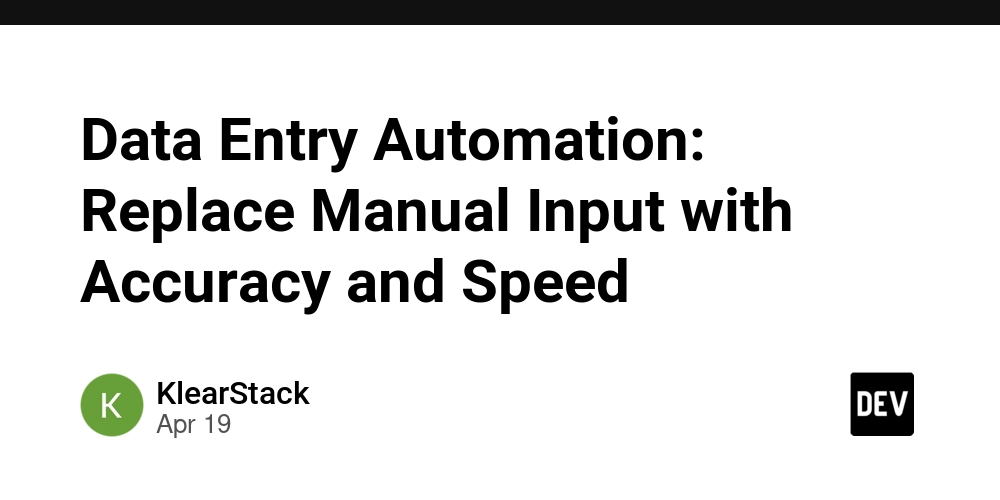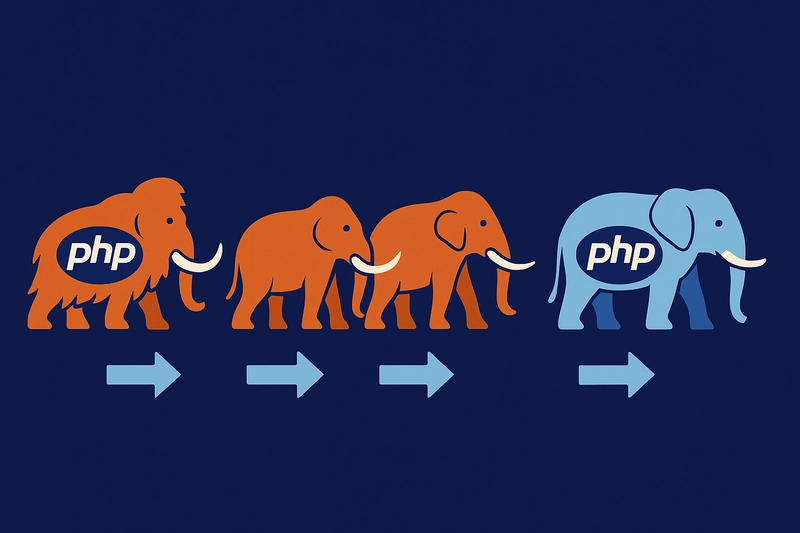Java Interview Questions for Freshers: Your First Step to Success
Starting your career in software development can be both exciting and overwhelming. One of the most common languages freshers encounter in their job search is Java. It’s used everywhere—from enterprise systems to Android apps—making it a valuable language to master early on. If you're preparing for interviews, understanding the types of Java interview questions you might face can be a game-changer. This guide is here to help you build your confidence and structure your preparation like a smart, strategic Java tutorial—no code required, just pure concept and clarity. Why Java for Freshers? Java is a preferred choice for many companies when it comes to hiring entry-level developers. The language is robust, object-oriented, and platform-independent, making it ideal for scalable software solutions. Employers look for candidates who understand Java’s core principles and can communicate how those principles apply to real-world scenarios. In interviews, your ability to explain concepts clearly often matters more than how quickly you can write a piece of code. That’s why this blog focuses on the most commonly asked Java interview questions in a conceptual format, ideal for freshers looking to make a strong first impression. Core Java Interview Questions for Freshers These questions are designed to evaluate your foundational understanding of Java and its building blocks. Be ready to explain these clearly and confidently: What is Java, and what are its key features? Interviewers want to know if you understand Java’s design philosophy—such as object-oriented structure, platform independence, and security. What is the difference between JDK, JRE, and JVM? A classic entry-level question. Focus on understanding the purpose and role of each component in the Java ecosystem. What are data types and variables in Java? Freshers should know the difference between primitive types and reference types and how variables are used to store information. What is the difference between a class and an object? This helps interviewers evaluate your grasp of object-oriented programming, which is central to Java. What is inheritance in Java? A key concept in object-oriented design, understanding inheritance shows you can organize and reuse code effectively. Can you explain method overloading and method overriding? These terms often confuse beginners, but they’re important for understanding how Java handles polymorphism. What is encapsulation, and why is it important? This question tests your understanding of how Java protects data and organizes behavior logically within classes. Java Behavior and Memory Management Once you're comfortable with basic concepts, the next level of Java interview questions often revolves around how Java handles memory and program execution: What is the difference between stack and heap memory? Freshers should understand where variables and objects live during a program’s lifecycle. What is garbage collection in Java? Java manages memory automatically, but you should be able to explain how unused objects are cleaned up behind the scenes. What is the lifecycle of an object in Java? This ties into both memory management and object-oriented design principles. Exception Handling and Java Flow Another common area of focus is how Java handles errors and controls program flow: What are exceptions in Java? Be ready to describe checked and unchecked exceptions and why they exist. What is the purpose of try-catch blocks? This shows whether you understand how Java maintains application stability during runtime errors. What is the difference between final, finally, and finalize? It’s not just a tricky wordplay—each of these plays a different role in Java’s behavior and needs to be explained clearly. Java Collections and Utilities You don’t need to dive deep into complex data structures, but a basic understanding of collections is often expected: What is a collection in Java? Start with the idea that collections are used to store and manipulate groups of objects. What is the difference between List, Set, and Map? Even a high-level comparison is enough to show that you understand their unique properties. Final Thoughts: Turn Questions into Your Java Tutorial Think of these Java interview questions not just as a checklist to memorize, but as a framework for self-study. Each one can guide you to research deeper, reflect on your understanding, and strengthen your ability to communicate technical ideas clearly. This approach turns your preparation into a personalized Java tutorial built on concepts, not just code. As a fresher, you might feel nervous about not having much practical experience. That’s okay. Interviews are often more about potential than perfection. When you can speak clearly about the core principles of Java—why it works the way it does, what its strengths are, and how different parts interact—you’ll stand out as someone who’s r

Starting your career in software development can be both exciting and overwhelming. One of the most common languages freshers encounter in their job search is Java. It’s used everywhere—from enterprise systems to Android apps—making it a valuable language to master early on.
If you're preparing for interviews, understanding the types of Java interview questions you might face can be a game-changer. This guide is here to help you build your confidence and structure your preparation like a smart, strategic Java tutorial—no code required, just pure concept and clarity.
Why Java for Freshers?
Java is a preferred choice for many companies when it comes to hiring entry-level developers. The language is robust, object-oriented, and platform-independent, making it ideal for scalable software solutions. Employers look for candidates who understand Java’s core principles and can communicate how those principles apply to real-world scenarios.
In interviews, your ability to explain concepts clearly often matters more than how quickly you can write a piece of code. That’s why this blog focuses on the most commonly asked Java interview questions in a conceptual format, ideal for freshers looking to make a strong first impression.
Core Java Interview Questions for Freshers
These questions are designed to evaluate your foundational understanding of Java and its building blocks. Be ready to explain these clearly and confidently:
What is Java, and what are its key features?
Interviewers want to know if you understand Java’s design philosophy—such as object-oriented structure, platform independence, and security.What is the difference between JDK, JRE, and JVM?
A classic entry-level question. Focus on understanding the purpose and role of each component in the Java ecosystem.What are data types and variables in Java?
Freshers should know the difference between primitive types and reference types and how variables are used to store information.What is the difference between a class and an object?
This helps interviewers evaluate your grasp of object-oriented programming, which is central to Java.What is inheritance in Java?
A key concept in object-oriented design, understanding inheritance shows you can organize and reuse code effectively.Can you explain method overloading and method overriding?
These terms often confuse beginners, but they’re important for understanding how Java handles polymorphism.What is encapsulation, and why is it important?
This question tests your understanding of how Java protects data and organizes behavior logically within classes.
Java Behavior and Memory Management
Once you're comfortable with basic concepts, the next level of Java interview questions often revolves around how Java handles memory and program execution:
What is the difference between stack and heap memory?
Freshers should understand where variables and objects live during a program’s lifecycle.What is garbage collection in Java?
Java manages memory automatically, but you should be able to explain how unused objects are cleaned up behind the scenes.What is the lifecycle of an object in Java?
This ties into both memory management and object-oriented design principles.
Exception Handling and Java Flow
Another common area of focus is how Java handles errors and controls program flow:
What are exceptions in Java?
Be ready to describe checked and unchecked exceptions and why they exist.What is the purpose of try-catch blocks?
This shows whether you understand how Java maintains application stability during runtime errors.What is the difference between final, finally, and finalize?
It’s not just a tricky wordplay—each of these plays a different role in Java’s behavior and needs to be explained clearly.
Java Collections and Utilities
You don’t need to dive deep into complex data structures, but a basic understanding of collections is often expected:
What is a collection in Java?
Start with the idea that collections are used to store and manipulate groups of objects.What is the difference between List, Set, and Map?
Even a high-level comparison is enough to show that you understand their unique properties.
Final Thoughts: Turn Questions into Your Java Tutorial
Think of these Java interview questions not just as a checklist to memorize, but as a framework for self-study. Each one can guide you to research deeper, reflect on your understanding, and strengthen your ability to communicate technical ideas clearly. This approach turns your preparation into a personalized Java tutorial built on concepts, not just code.
As a fresher, you might feel nervous about not having much practical experience. That’s okay. Interviews are often more about potential than perfection. When you can speak clearly about the core principles of Java—why it works the way it does, what its strengths are, and how different parts interact—you’ll stand out as someone who’s ready to grow.
Start with these questions. Reflect, research, and rehearse your answers. You’ve already taken your first step to success.





























![[Webinar] AI Is Already Inside Your SaaS Stack — Learn How to Prevent the Next Silent Breach](https://blogger.googleusercontent.com/img/b/R29vZ2xl/AVvXsEiOWn65wd33dg2uO99NrtKbpYLfcepwOLidQDMls0HXKlA91k6HURluRA4WXgJRAZldEe1VReMQZyyYt1PgnoAn5JPpILsWlXIzmrBSs_TBoyPwO7hZrWouBg2-O3mdeoeSGY-l9_bsZB7vbpKjTSvG93zNytjxgTaMPqo9iq9Z5pGa05CJOs9uXpwHFT4/s1600/ai-cyber.jpg?#)










































































































































![[The AI Show Episode 144]: ChatGPT’s New Memory, Shopify CEO’s Leaked “AI First” Memo, Google Cloud Next Releases, o3 and o4-mini Coming Soon & Llama 4’s Rocky Launch](https://www.marketingaiinstitute.com/hubfs/ep%20144%20cover.png)





























































































































![[FREE EBOOKS] Machine Learning Hero, AI-Assisted Programming for Web and Machine Learning & Four More Best Selling Titles](https://www.javacodegeeks.com/wp-content/uploads/2012/12/jcg-logo.jpg)








































































![Rogue Company Elite tier list of best characters [April 2025]](https://media.pocketgamer.com/artwork/na-33136-1657102075/rogue-company-ios-android-tier-cover.jpg?#)








































































_Andreas_Prott_Alamy.jpg?width=1280&auto=webp&quality=80&disable=upscale#)






























































































![What’s new in Android’s April 2025 Google System Updates [U: 4/18]](https://i0.wp.com/9to5google.com/wp-content/uploads/sites/4/2025/01/google-play-services-3.jpg?resize=1200%2C628&quality=82&strip=all&ssl=1)










![Apple Watch Series 10 Back On Sale for $299! [Lowest Price Ever]](https://www.iclarified.com/images/news/96657/96657/96657-640.jpg)
![EU Postpones Apple App Store Fines Amid Tariff Negotiations [Report]](https://www.iclarified.com/images/news/97068/97068/97068-640.jpg)
![Apple Slips to Fifth in China's Smartphone Market with 9% Decline [Report]](https://www.iclarified.com/images/news/97065/97065/97065-640.jpg)




































































































































